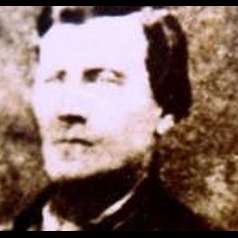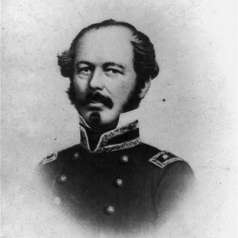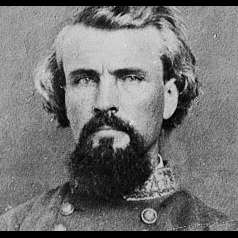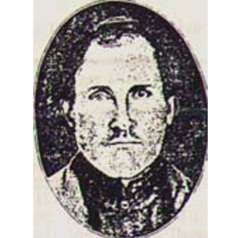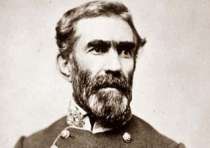
Braxton Bragg, controversial commander of the Army of Tennessee from 1862 to 1863, was born in Warrenton, North Carolina, on March 21, 1817. He graduated fifth in his class at West Point in 1837. Bragg fought against the Seminoles and served in the Mexican War. He resigned his commission in 1856 to become proprietor of a sugar plantation in Louisiana. When Louisiana seceded in January 1861, Bragg served first as commander of state forces and then as a brigadier general in the Confederate army. His friend Jefferson Davis promoted Bragg to major general in March 1861.
In February 1862 Bragg joined Albert Sidney Johnston's army in northern Mississippi. He served as a corps commander at Shiloh. When General P. G. T. Beauregard took an unauthorized sick leave, President Davis replaced him as army commander with Bragg.
Bragg shifted troops from Tupelo to Chattanooga in the spring of 1862 and launched an invasion of Kentucky that summer. After a battle at Perryville, Bragg's army retreated into Tennessee. Bragg attacked Federal forces near Murfreesboro along the Stones River on December 31, 1862, but failed to dislodge them and withdrew to the southeast.
After being maneuvered out of Chattanooga in September 1863, Bragg counterattacked at Chickamauga and drove the Union forces back into the city. He squandered the victory, however, by quarreling with his subordinates while the Federals brought Ulysses S. Grant and heavy reinforcements to Tennessee. Strengthened, the Union army delivered a humiliating defeat at Lookout Mountain and Missionary Ridge that compelled Bragg to resign. Davis accepted his resignation but summoned Bragg to Richmond to serve as his chief military advisor. Bragg returned to field command in late 1864 in North Carolina and fought at both Kinston and Bentonville. After the war Bragg served as chief engineer for the state of Alabama before relocating to Galveston, Texas, where he died on September 27,
Tools
Key Facts
- West Point graduate, served with distinction in Mexican War
- Attacked Federal forces at Stones River
- Drove the Union from Chickamauga back to Chattanooga
- Resigned after humiliation in Chattanooga; became Davis' chief military adviser




